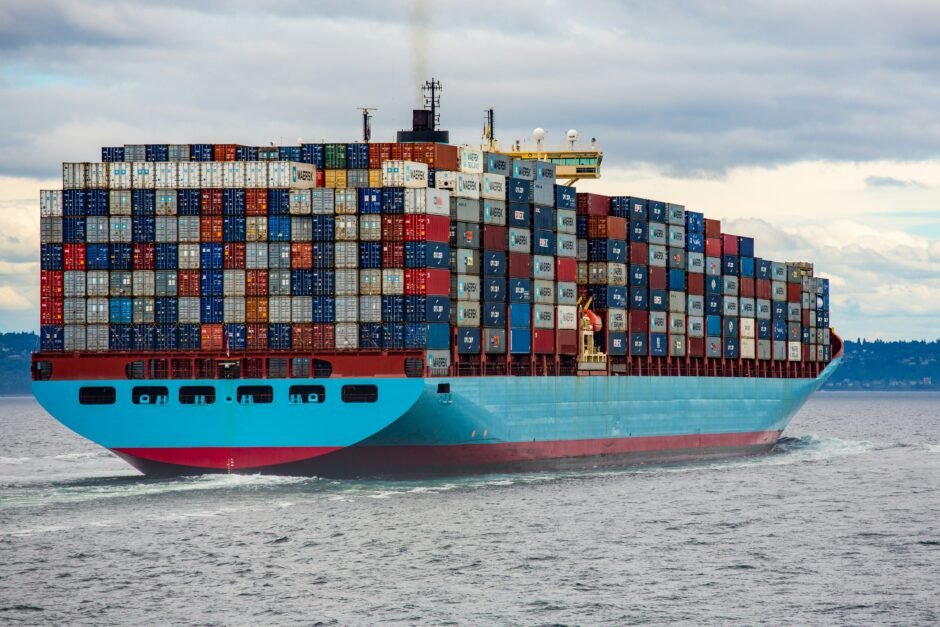Learn about the role of Git, editors, Java, and Python in the software development cycle. Discover how Git enables efficient version control, explore popular editors like Visual Studio Code, and…
The Role of Docker and Kubernetes in Software Development Supported by EC2 Infrastructure

Learn about Docker and Kubernetes, two powerful tools for efficient and scalable software development.
Discover the benefits of Docker, including portability, scalability, and isolation.
Explore the key features of Kubernetes, such as automated scaling, load balancing, and self-healing.
See how Docker, Kubernetes, and the EC2 infrastructure provided by AWS work together to deploy and manage applications in a cloud environment.

Embrace cloud computing and leverage Docker and Kubernetes for efficient and scalable software development.
Introduction to Docker and Kubernetes
In today’s rapidly evolving software development landscape, it is crucial for businesses to adopt efficient and scalable infrastructure solutions.
Docker and Kubernetes have emerged as powerful tools that enable developers to streamline the software development process and manage applications effectively.
When combined with the robust EC2 infrastructure provided by Amazon Web Services (AWS), these technologies offer a comprehensive solution for deploying and managing applications in a cloud environment.
Understanding Docker
Docker is an open-source platform that allows developers to automate the deployment of applications inside lightweight, portable containers.
These containers provide a consistent and isolated environment for running applications, ensuring that they work seamlessly across different operating systems and environments.
Docker containers encapsulate all the dependencies required to run an application, eliminating the need for manual setup and configuration.
Here’s an example of how Docker simplifies the software development process:
FROM python:3.8
WORKDIR /app
COPY requirements.txt .
RUN pip install -r requirements.txt
COPY . .
CMD ["python", "app.py"]
Benefits of Docker
Docker offers several key benefits in the software development process:

1. Portability
Docker containers are highly portable, allowing developers to build an application once and run it anywhere.
This eliminates the need for complex setup processes and ensures consistency across different environments, making it easier to deploy applications across multiple servers or cloud platforms.
2. Scalability
Docker enables developers to scale applications quickly and efficiently.
By leveraging containerization, developers can easily replicate containers to handle increased traffic or workload.
This flexibility allows businesses to respond rapidly to changing demands and ensures optimal performance.
3. Isolation
Docker containers provide a high level of isolation, ensuring that applications run independently and do not interfere with each other.
This isolation prevents conflicts between dependencies and reduces the risk of system failures. Developers can also run multiple containers on a single host, further optimizing resource utilization.
Introduction to Kubernetes
Kubernetes is an open-source container orchestration platform that automates the deployment, scaling, and management of containerized applications.
It provides a robust framework for managing clusters of containers, making it easier to deploy and scale applications in a distributed environment.
Key Features of Kubernetes
Kubernetes offers several key features that enhance the software development process:
1. Automated Scaling
Kubernetes enables automatic scaling of applications based on resource utilization.
It monitors the performance of containers and adjusts the number of replicas to ensure optimal resource allocation. This feature ensures that applications can handle increased traffic without manual intervention.

2. Load Balancing
Kubernetes distributes incoming traffic across multiple containers, ensuring that applications remain available and responsive.
It automatically detects and redirects traffic to healthy containers, minimizing downtime and improving overall reliability.
3. Self-Healing
Kubernetes continuously monitors the health of containers and automatically restarts or replaces failed instances.
This self-healing capability ensures that applications remain available even in the event of failures, enhancing overall system resilience.
Combining Docker, Kubernetes, and EC2 Infrastructure
When combined with the EC2 infrastructure provided by AWS, it offer a powerful solution for deploying and managing applications in a cloud environment.
EC2 instances provide the underlying compute resources required to run Docker containers, while Kubernetes orchestrates the deployment and management of these containers.
Here’s an example of how Docker, Kubernetes, and EC2 infrastructure work together:
apiVersion: apps/v1
kind: Deployment
metadata:
name: my-app
spec:
replicas: 3
selector:
matchLabels:
app: my-app
template:
metadata:
labels:
app: my-app
spec:
containers:
- name: my-app-container
image: my-app-image
ports:
- containerPort: 8080
Conclusion for Docker and Kubernetes
Docker and Kubernetes have revolutionized the way software is developed and deployed. By leveraging containerization and orchestration,
developers can streamline the software development process, enhance scalability, and improve application reliability.

When supported by the robust EC2 infrastructure provided by AWS, these technologies offer a comprehensive solution for deploying and managing applications in a cloud environment.
As businesses continue to embrace cloud computing, it will play an increasingly vital role in enabling efficient and scalable software development.

https://itexamsusa.blogspot.com/2023/12/mastering-matlab-programming-for.html
https://itexamsusa.blogspot.com/2023/12/monolith-vs-microservices-which-one-is.html
https://itexamsusa.blogspot.com/2023/12/publicprivate-keypairs-and-generating.html
https://itexamsusa.blogspot.com/2023/10/exam-dp-203-data-engineering-on.html
https://itexamsusa.blogspot.com/2023/10/ccnp-enterprise-advanced-routing-enarsi.html
https://itexamsusa.blogspot.com/2023/10/red-hat-certified-engineerrhce-ex294.html
https://itexamsusa.blogspot.com/2023/09/github-actions-to-auto-build-your.html
